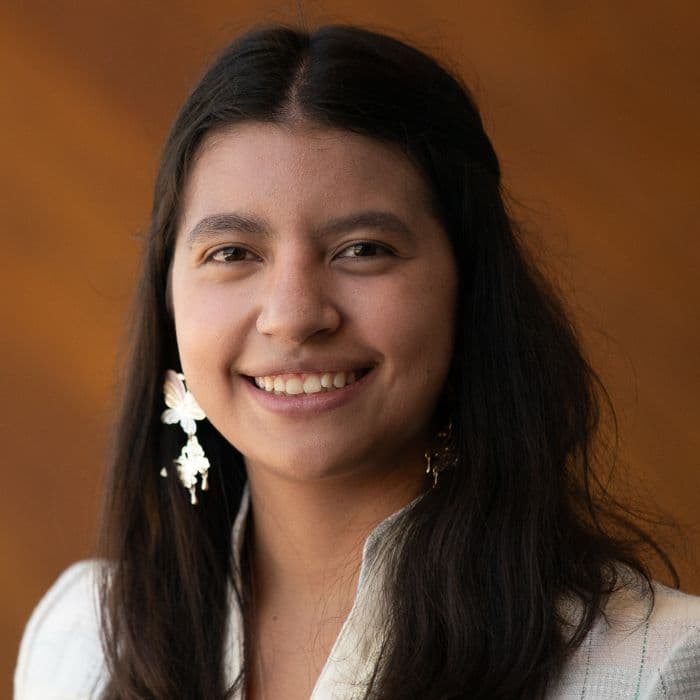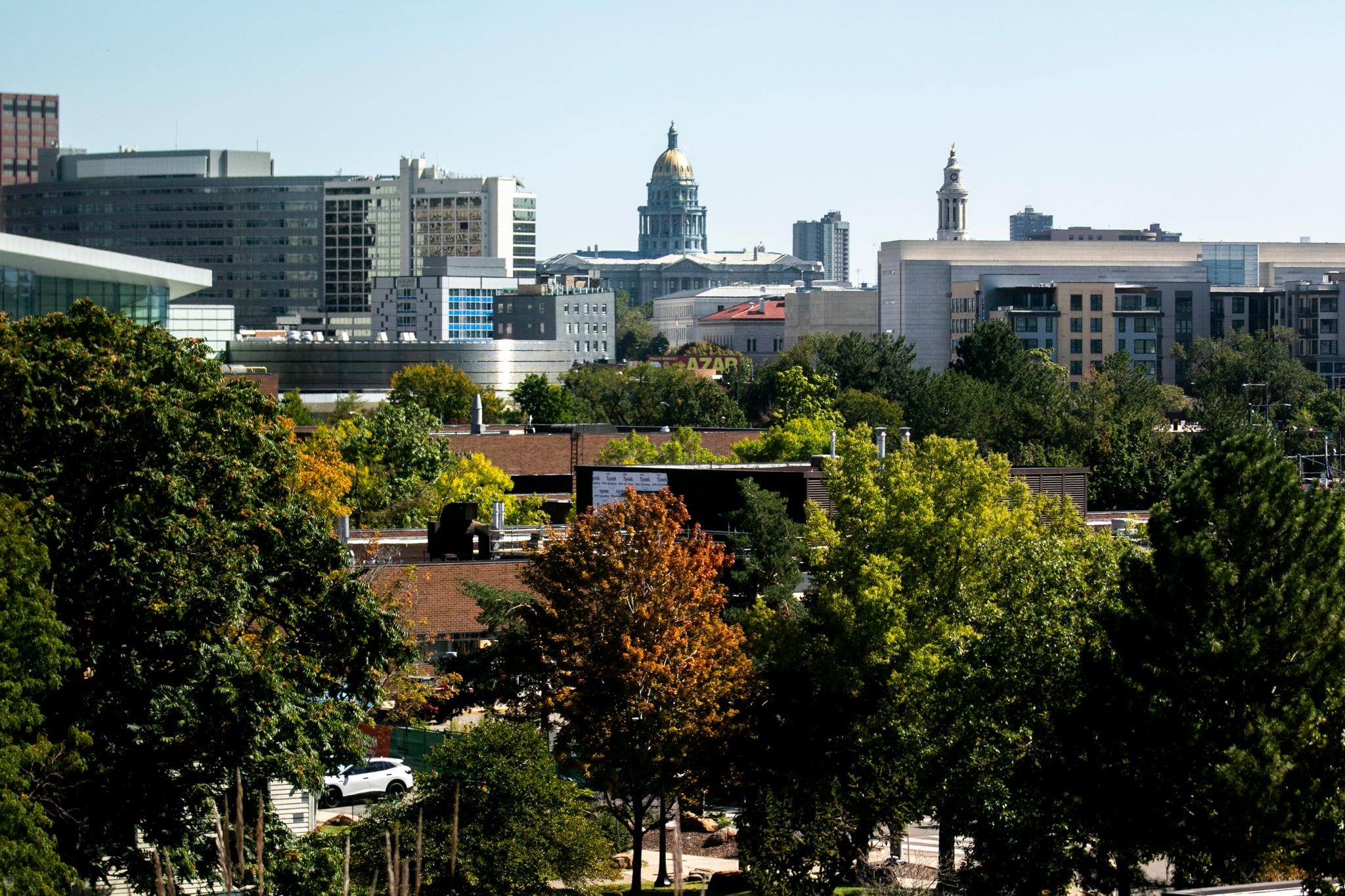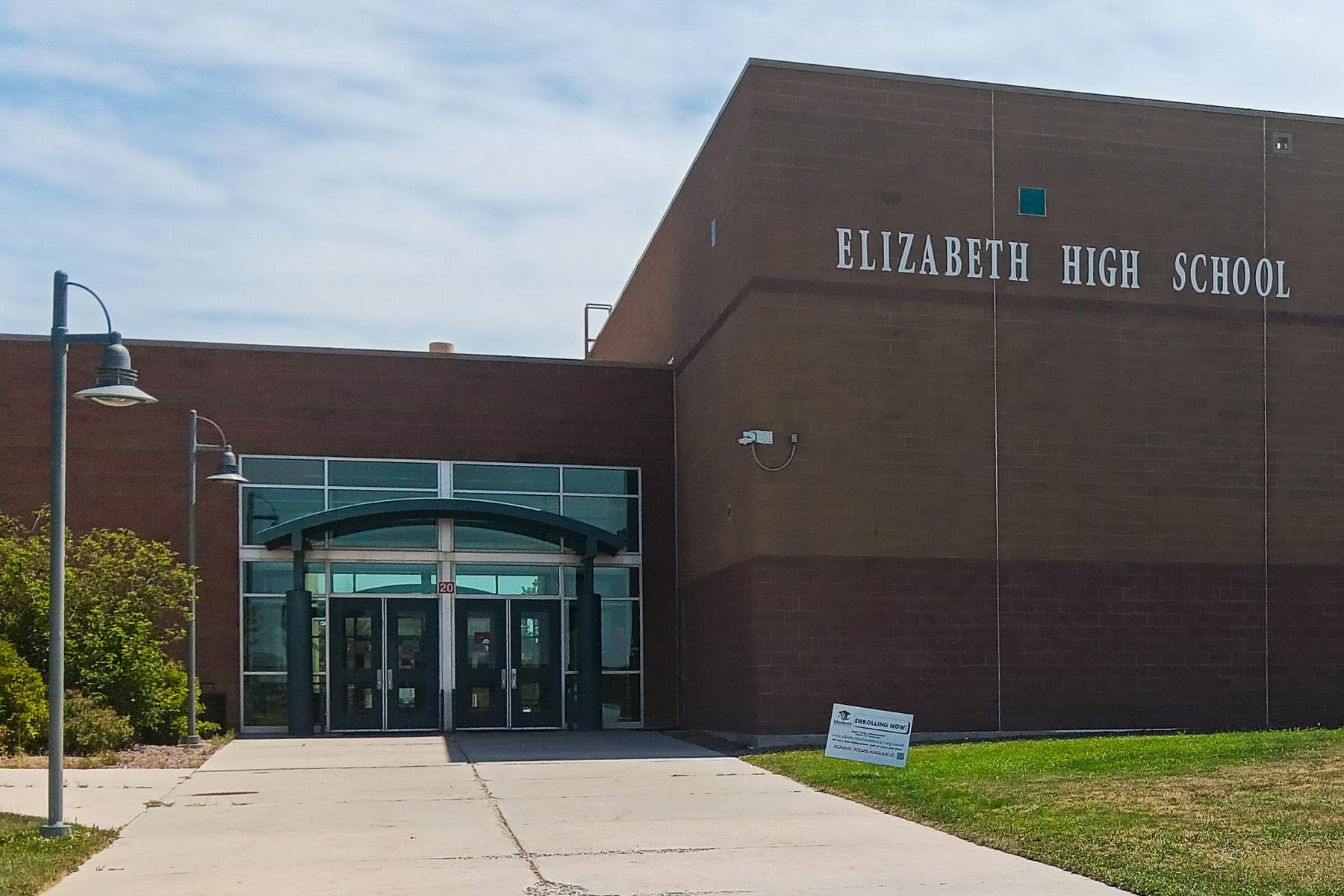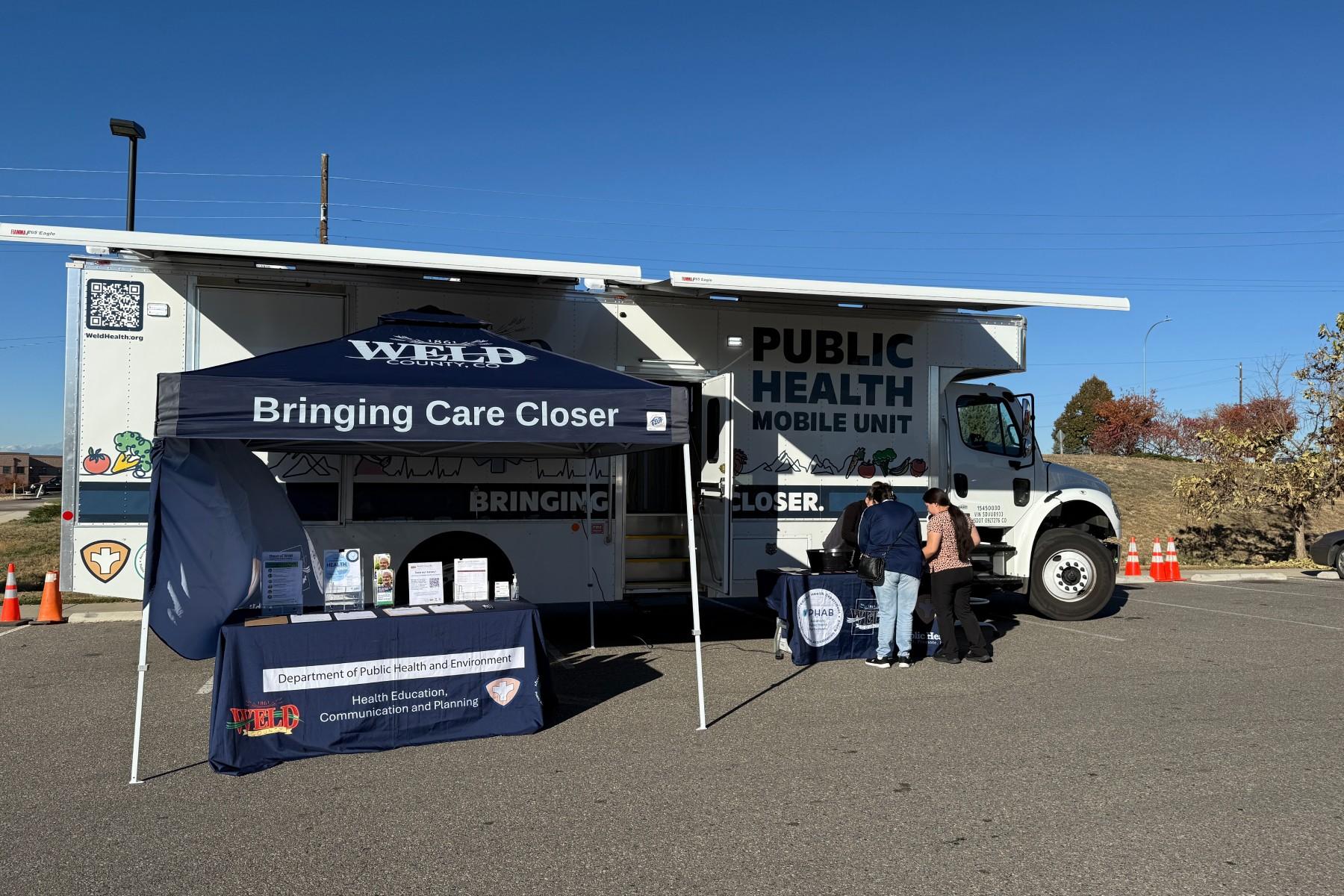
In its white paint with vegetable drawings and blue stripes, Weld County’s mobile health unit arrives at the Guadalupe Apartments in Greeley.
It is early November at the permanent low-income housing building, and the parking lot is fairly empty. A soft breeze moves the fallen leaves around the mobile health unit, and the painted pumpkins at the apartment’s entrance seem like they are about to fly away.
Three nurses and two community health workers come out of the unit. They get tables and pamphlets out of storage and start inviting people to get vaccinated, do some STI testing and get screened for prediabetes. All for free.
It has been six months since the group started traveling in the two-room unit around Weld County. Their mission: to breach barriers to public health by bringing these services to the county’s rural areas and vulnerable populations.
“There's a lot of vaccine hesitancy. There's a lot of hesitancy with health care. There's a lot of hesitancy with the government,” said Shanti Sanchez, clinical outreach coordinator and one of the nurses traveling with the unit. “The mobile unit kind of encompasses all of those in one.”
In its first year, workers are focusing on gaining visibility with the public and collecting data. For Sanchez and her team of nurses and community health workers, these last six months have been about learning which events and cities are the most effective to reach the Weld County community.
From low-income permanent housing parking lots to health fairs and food banks, the mobile unit is out making stops three to four days a week. At some events, they can provide up to 172 STI tests, dozens of vaccines and book a couple of follow-up appointments.
At other events, people are more reluctant to approach the unit.
Part of the hesitancy, workers say, comes from a fear of financial burden, a lack of insurance, or unfamiliarity.
Another part comes with a language barrier. All services in the mobile health unit are provided in Spanish and English; both nurses and community health workers are bilingual. But sometimes, the caretakers have found themselves hurrying up to use their phones to translate between possible patients.
“Sometimes people will look at us like warily until we start speaking to them in Spanish,” said Laura Johnson, community health worker with the mobile health unit. “They are scared these services are not for them because they cannot understand us.”
Weld County makes up 6 percent of Colorado’s population, even as it is the third biggest county in the state by area. According to the most recent census data, the county is 31 percent Hispanic, 61 percent white and 2 percent Asian. While there is no precise data of how many languages are spoken in the county besides English, 8 percent of residents were foreign-born.
An interpreter can be requested ahead of an event if needed, but for walk-ins, there is no guarantee. Community health workers and nurses then rely on a telephone translation line and FaceTime-style translation access — like most hospitals. Issues like connectivity and wait times also play a role.
Currently, there are no plans for expanding the unit’s language services.
“Being as we are only six months in at this point, we are still collecting and evaluating our list of potential improvements,” wrote Shaun May, director of public health services for Weld County, in an email. “I’m not ready to share them as it is still a bit premature, but it is something we are focused on.”
Let’s talk about the money and the big picture:
May’s department is projecting expenses for the mobile health unit will be around $300,000 for the 2026 fiscal year. About 70 percent of the funding comes from Colorado Department of Public Health and Environment grants and health insurance reimbursements — approximately $230,000 in all. Weld County covers the remaining $70,000.
Weld County’s budget proposal for 2026 includes a 2.4 percent increase for public health community services. Most of this money would go towards two new full-time positions within the department and “$10,000 for the department’s employee appreciation program,” with no upcoming changes for the mobile health unit, officials say.
While Weld County is looking into increasing its public health budget, priorities across the state surrounding health care are shifting. Insurance premiums are rising for the upcoming year, and Gov. Polis’ proposed budget suggests cuts to Medicaid. The cuts could include capping reimbursement rates and limiting dental benefits and home caregiver hours, among other proposals.
The cuts would come as the state transitions from one financially tight year into another. Colorado cannot sustain its current level of government programs for the state’s safety net. To do so, they’d need $850 million more than what is projected to be available for the 2026 fiscal year.
May said that the current cuts to Medicaid and the government shutdown have not impacted the mobile health unit.
He and Sanchez share the same resolve: They will continue providing these services for as long as they can.
“ The mobile unit is just like public health at its finest,” Sanchez said. “It’s where we're actually going out to the communities and bringing our services to them and meeting people where they are.”
Is the mobile health unit working?
With a projected 100,000 Coloradans losing their health insurance coverage over the next couple of months, the mobile health unit’s work is becoming even more essential.
Everyone who receives a vaccine or test with the mobile health unit is invited to fill out a survey asking for feedback, patient satisfaction, and most importantly, demand.
At the end of the survey, a question asks if people would have received these services if the mobile health unit hadn’t come to them. Between May and September, about 58 percent of responses to that question were “No.”
This demand is what originally led officials to launch the mobile health unit in the first place.
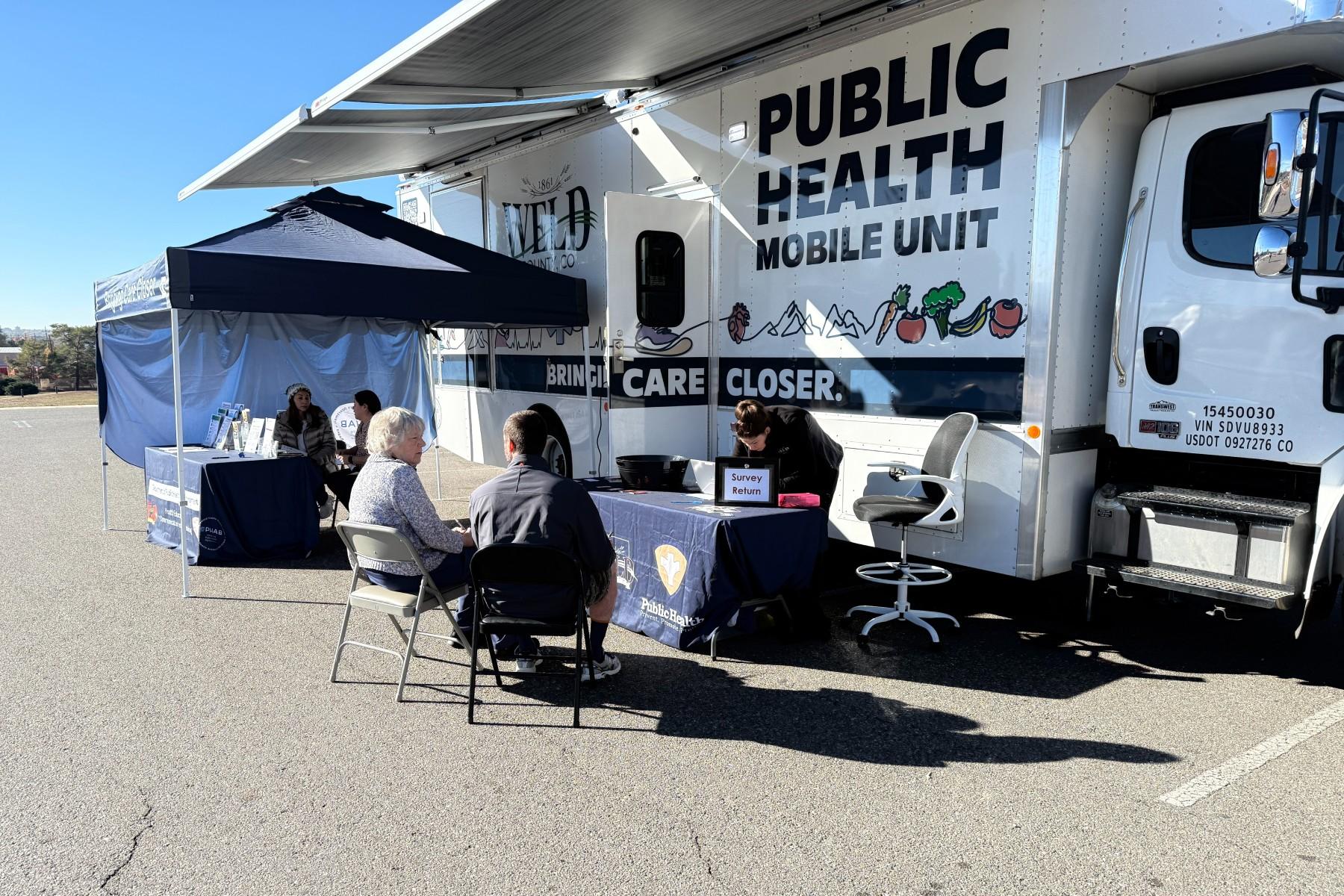
Back during the pandemic, community health workers and nurses in Weld County traveled across the county for vaccination clinics and events. By 2022, many of them were driving their personal cars filled with supplies. A year after that, they needed to turn people away due to a lack of supplies.
Laura Johnson remembers those days. Sometimes their services would be limited due to the lack of space at a health fair or because of sanitation conditions. On other occasions, once the winter weather began, they had to stop some of their outreach.
Now, the mobile health unit makes it possible for them to travel farther, offer more services, bring their computers along to schedule appointments for patients from remote locations, and continue working as the weather shifts.
For Tyler Wiedeman, who works at the Guadalupe Apartments in north Greeley, the mobile health unit is the difference between monitoring his prediabetes or not.
“ I would rather not go to a hospital,” Wiedeman said. “I would rather do this than go wait in line for three hours and take, you know, time off of work to get a shot. So this is easy.”
Other patients said the mobile health unit also allows them to receive services they wouldn’t otherwise because of fear of the financial burden, immigration checks and need for proof of residency — among other reasons.
All services provided by the mobile health unit are free. But some insurance information can be used to pay for vaccines if patients have it.
Editor's note: This story has been corrected to accurately reflect how much of Weld County's population is white.
